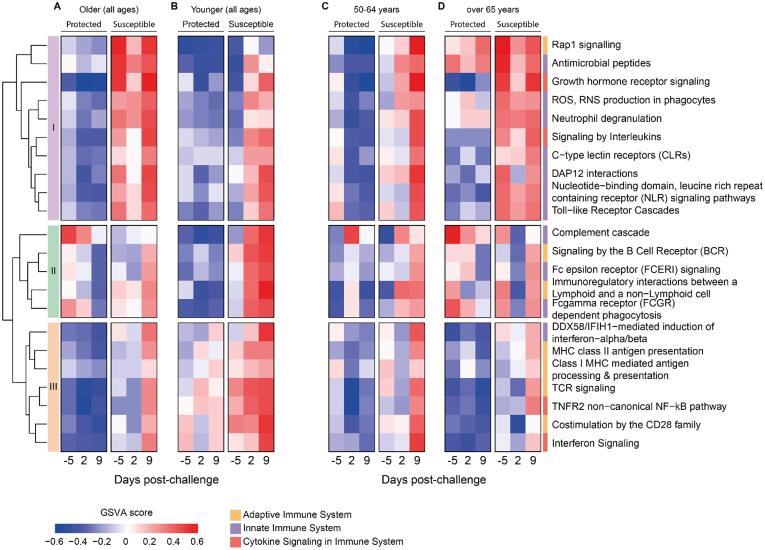Inflammation of the nasal mucosa is associated with susceptibility to experimental pneumococcal challenge in older adults.
Streptococcus pneumoniae colonization in the upper respiratory tract is linked to pneumococcal disease development, predominantly affecting young children and older adults. As the global population ages and comorbidities increase, there is a heightened concern about this infection. We investigated the immunological responses of older adults to pneumococcal-controlled human infection by analyzing the cellular composition and gene expression in the nasal mucosa. Our comparative analysis with data from a concurrent study in younger adults revealed distinct gene expression patterns in older individuals susceptible to colonization, highlighted by neutrophil activation and elevated levels of CXCL9 and CXCL10. Unlike younger adults challenged with pneumococcus, older adults did not show recruitment of monocytes into the nasal mucosa following nasal colonization. However, older adults who were protected from colonization showed increased degranulation of cluster of differentiation 8+ T cells, both before and after pneumococcal challenge. These findings suggest age-associated cellular changes, in particular enhanced mucosal inflammation, that may predispose older adults to pneumococcal colonization.
Authors
Urban BC, Gonçalves ANA, Loukov D, Passos FM, Reiné J
External link
Publication Year
Publication Journal
Associeted Project
Systems Immunology of Human Diseases
Lista de serviços
-
Is the gut microbiome key to modulating vaccine efficacy?Is the gut microbiome key to modulating vaccine efficacy?
-
Toxicogenomic and bioinformatics platforms to identify key molecular mechanisms of a curcumin-analogue DM-1 toxicity in melanoma cells.Toxicogenomic and bioinformatics platforms to identify key molecular mechanisms of a curcumin-analogue DM-1 toxicity in melanoma cells.

